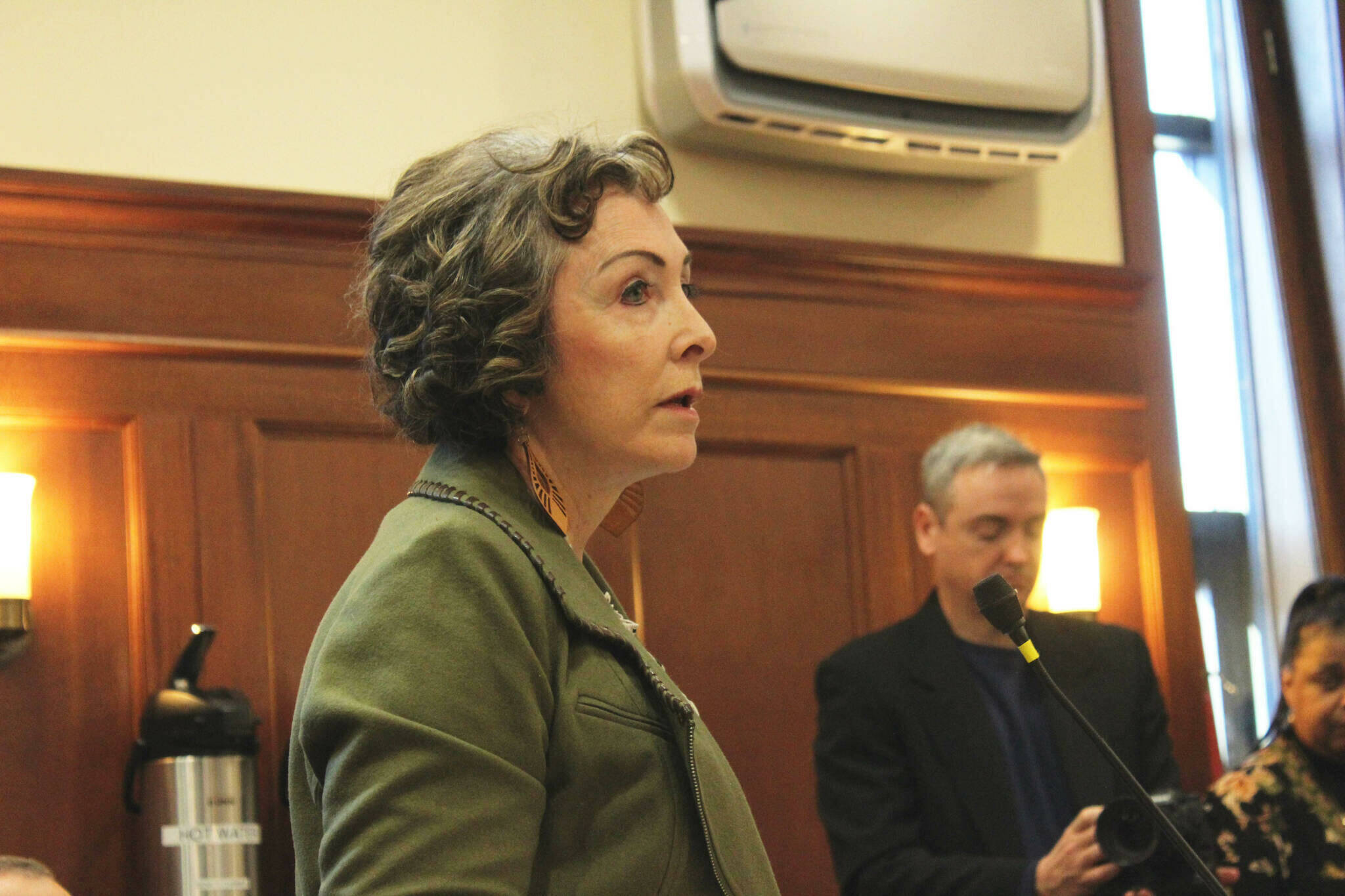A comprehensive education bill that raises the amount of money the state spends per student and that passed both chambers of the Alaska Legislature “falls short of improving outcomes for students,” Gov. Mike Dunleavy said Monday via social media.
Dunleavy’s tweet, sent less than an hour after senators voted 18-1 to concur with the version of Senate Bill 140 passed by the House of Representatives last week, says his “initial review” is that it doesn’t support the Alaska Reads Act, doesn’t improve access to charter schools and doesn’t do anything to recruit and retain teachers.
“We can’t do the same thing over and over again and expect different results,” he said.
The bill includes a $680 increase (about an 11% increase) to the amount of money the state gives school districts per student — called the base student allocation — and provides $500 per K-3 student in need of reading intervention as part of the Alaska Reads Act. It further funds students enrolled in correspondence programs, such as home-schools, at the same level as students attending brick-and-mortar schools.
That BSA increase would bring in about $5.2 million for the Juneau School District, which is facing a nearly $10 million budget deficit for the upcoming fiscal year.
The bill also allows Alaskans trying to start charter schools to directly petition the Alaska Department of Education and Early Development if a school board denies the charter application and creates a new “charter school coordinator” position within the department to support the state’s charter schools.
The underlying legislation before amendments allows eligible Alaska school district to apply for federal funding to improve the quality and speed of internet in their schools. Because applications for those funds must be submitted by the end of February, there is pressure to get the bill approved before then.
Left out of the bill were teacher bonuses pushed by Dunleavy as a retention and recruitment tool, although the bill does include nonbinding language urging districts to use some of the additional state funds for that purpose. The same language says school districts shall report back to the Legislature the efforts they made to funnel some of the extra money into teacher salaries and bonuses.
“To the greatest extent possible, a portion of additional funds authorized by this legislation shall be directed to the classroom in the form of educator salary and retention bonuses,” the bill says.
Dunleavy has 15 days to either sign the bill or veto it. If he vetoes the bill, lawmakers could override that veto with a two-thirds majority vote among the 60 legislators meeting in joint session.
In the Senate on Monday morning, two lawmakers voiced their reservations about backing the bill.
Sen. Shelley Hughes, a Palmer Republican, said she likes the bill because it increases opportunities for charter schools and correspondence students, but her district is “very concerned” about the budgetary impact of a $680 increase to the base student allocation. Hughes said she would vote to concur with the House’s version of SB 140, but will also support Dunleavy if he vetoes the legislation.
“The ball is going to be in his court after this vote,” Hughes said. “If he decides to play hardball, Mr. President, I will be on his team.”
Sen. Mike Shower, R-Wasilla, cast the lone vote in opposition to concurrence with the House version of the bill. He said he wanted to see any increase in education spending tied more directly to specific programs, such as teacher raises or support specific to rural schools, and expressed concern that school districts would “gobble that money up” with no reporting of whether it is put toward teachers and students.
“We’re throwing another — at this point — about a quarter of a billion dollars at the system, with no guarantee it’s going to go where we know it needs to go to make a difference,” Shower said. “Those are problems for me.”
Sen. Jesse Bjorkman, R-Nikiski, declared a potential conflict of interest prior to the Senate’s vote on the bill. When not in Juneau, Bjorkman teaches at Nikiski Middle/High School. Senate President Gary Stevens, R-Kodiak, ruled that he did not have a conflict, and Bjorkman was one of the 18 votes in favor of concurrence.
When asked Monday whether he would vote to overturn a gubernatorial veto of SB 140, Rep. Justin Ruffridge, R-Soldotna, said he would not comment on “what ifs.”
“It would be really helpful to refrain until we actually see what it is that we’re dealing with and then I’d be happy to talk more about what that would look like going forward,” Ruffridge said. “I remain pretty committed to the process and that’s obviously part of the process, is working with your chief executive.”
As co-chair of the House Education Committee, Ruffridge said his office was “very involved” in the conversations leading up to the House vote last Thursday. The $680 figure, he said, came from conversations he had with the Kenai Peninsula Borough School District’s superintendent and finance director as a “bare minimum” amount that would also pass in the Legislature.
“I didn’t feel like it was a number that was untenable from a fiscal perspective, but I also didn’t feel like it was politically unpopular either,” he said. “There was support from people all across the state.”
The governor’s office announced Dunleavy will hold a press conference Tuesday afternoon in Anchorage to discuss the legislation.
• Reach reporter Ashlyn O’Hara at ashlyn.ohara@peninsulaclarion.com. This reporting from the State Capitol was made possible by the Alaska Center for Excellence in Journalism’s Legislative Reporter Exchange.

